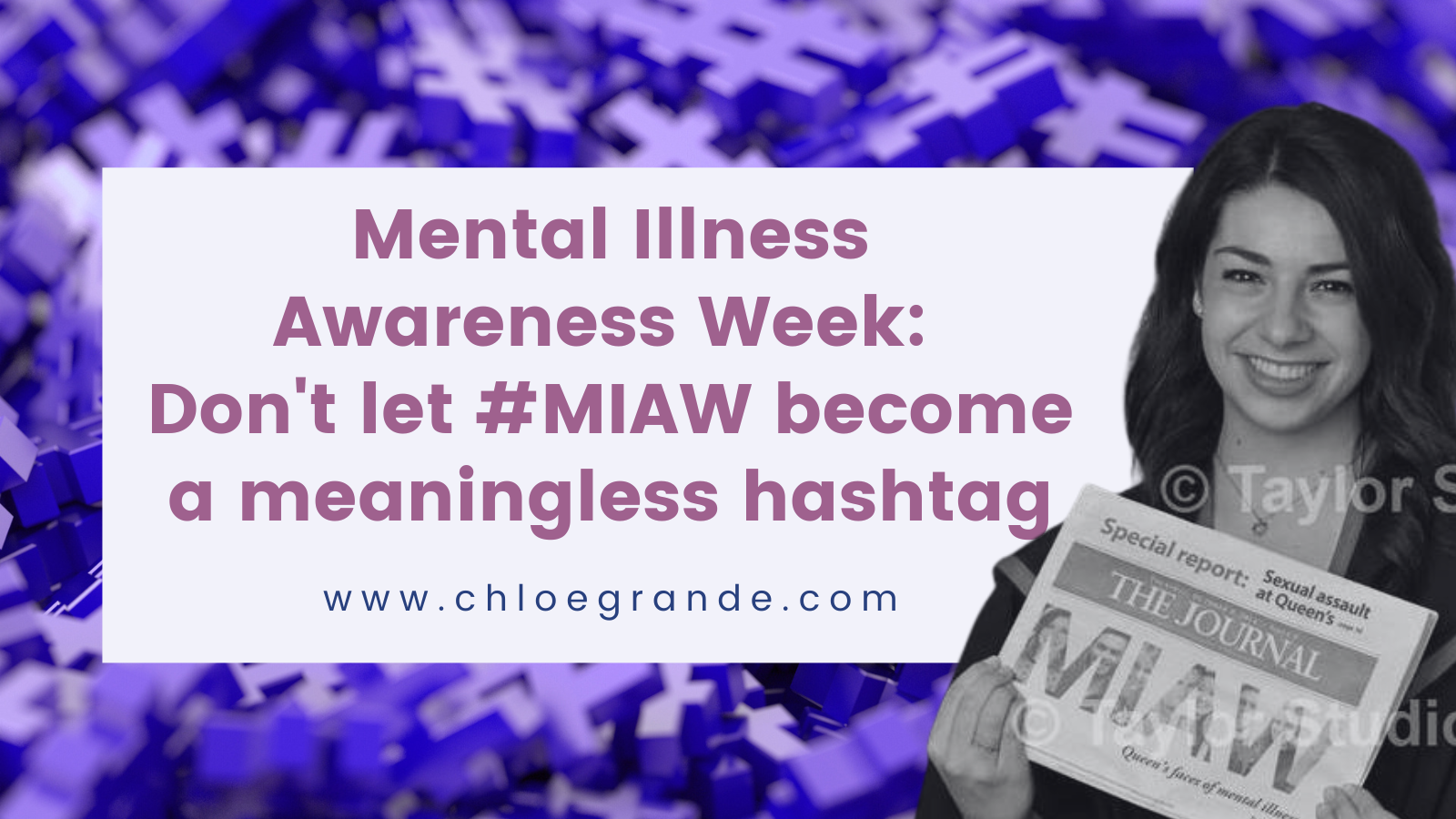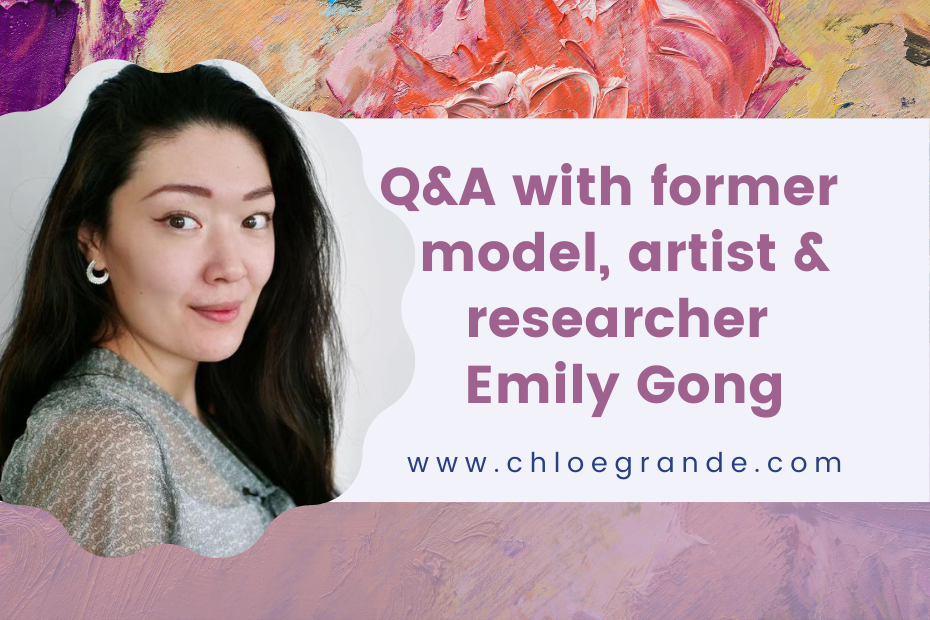I can’t believe it’s been one year since I started my eating disorder recovery blog! Twelve months ago, I remember feeling so nervous about announcing my launch. Flip forward to today, and I’ve proudly added “Mental Health Blogger” to my professional bio.
Since launching, I’ve written 24 blog posts on topics ranging from eating disorder symptoms and therapy tips, to gymnastics and how pets boost mental health. I started a newsletter, became more vocal on social media, participated in media interviews and have set my sights higher to reach even more people in 2022.
My initial goal was to test out blogging for a year, and depending how it went, I’d decide whether to keep going or not. Well, I’m definitely not slowing down anytime soon.
In celebration of my one year blog anniversary, these are some of the lessons I’ve learned.
Mental health blogging can be emotionally draining
Nearly every time I publish a new blog, I feel immediate fear for the next 24 hours. I want to hide and withdraw, scared I revealed too much or not enough about myself. Or maybe I said the wrong thing, made a typo or just wrote a mediocre post. That fear is perfectly normal — there’s even a name for it.
According to author Brené Brown, who coined the term “vulnerability hangover,” it’s the gut-wrenching feeling of shame and fear that pops up right after we take an emotional risk. Brown reminds us to reflect on who deserves to hear our intimate self-disclosures. They’re not for everyone and we need to ask ourselves the question: who deserves the privilege to hear our stories?
I’ve stumbled on the realization that no matter how much content I pump out, there will still be people who don’t understand or don’t care to learn about mental illness or eating disorders. This realization helps ease the post-publishing anxiety.
Some things that help are reminding myself that I’ve done this before and nothing bad has happened. The more I post and put myself out there, the less anxious I feel afterwards.
Learn more: Avoiding the Vulnerability Hangover (Psychology Today article)
There's such a supportive mental health blog community
As much as I love blogging, it can be an isolating experience. Most of the time is spent hunched over a keyboard, trying to form my thoughts into a coherent narrative and working on the website backend (so fun!).
When I launched this blog, I knew I wanted to promote it on my personal social media accounts and have it connected to my name — big gulp. What would others think? Would I be judged differently? I fought through those doubts and shared anyway.
On Twitter, I’ve been able to connect with clinicians in the eating disorder field. On Instagram, there’s a been so, so many others going through their own recovery journeys. Even on Facebook, I heard from high school friends and friends of friends who had gone through something similar. It’s surreal to think of all the connections I’ve made through blogging.
I’m consistently inspired by bloggers who also talk about their mental health. If it weren’t for those that paved the way for us newbies, I would have never dreamed of starting a blog. I draw from their strength and perseverance to keep hitting that ‘publish’ button week after week.
Learn more: How to Write About Your Mental Health Without Traumatizing Yourself (Inspire the Mind blog post)

None of my biggest fears came true
Shocking, right? I thought no one would care or want to read about eating disorder recovery. Well, besides my family and a handful of close friends. That was wrong because apparently more than 2,000 (!!) of you have visited my website over the past year.
Even when I steered away from eating disorder recovery to discuss other mental health issues, like social anxiety, these posts were surprisingly well-received. Eating disorders don’t usually exist in a vacuum and are often paired with conditions like anxiety or depression (or both!).
I’m encouraged to write more about my experiences with social anxiety and depression — I even had a chance to talk about social anxiety on an upcoming episode of the Embracing Awkward podcast with host Muni. Showing all the ways an eating disorder plays into other aspects of mental health breaks down the stigma that EDs are a one-time, “phase” that only teenage girls go through.
Learn more: Common mental health disorders associated with eating disorders (Centre for Discovery blog post)

Blogging is a marathon, not a sprint
I had very high, unrealistic blogging expectations for myself. I wanted to write regularly and post daily on social media, all while becoming an SEO wizard and subject matter expert. I envisioned myself leading important discussions on Twitter, calling out Instagram wellness influencers and writing lengthy, insightful LinkedIn posts.
While I did accomplish some of those things, the cost of failing to meet my expectations held me back. I was burning myself out and trying to accomplish too much. From all the research I’d done on starting a blog, this was a common warning: don’t stretch yourself too thin. Oops!
Moving forward, I’m scaling back on my social media usage and focusing more on Instagram content, instead of trying to be everywhere at once. I’ve also created a blogging schedule to keep me from scrambling for last-minute ideas. It helps to see other content creators taking breaks — we all need downtime to refresh our minds and get our heads out of the virtual world.
Learn more: Why It’s Perfectly OK to Take a Break from Blogging (blog post by Margaret Bourne)

A lot happens behind-the-scenes
This probably won’t come as a surprise, but there are parts of my life that I don’t share on my blog or social media. Because mental health blogging is so intimate and personal, there’s a balance in choosing what I disclose publicly.
2021 was full of unexpected life challenges. As I’ve come to realize, major life changes are a big trigger for eating disorder behaviour. There were days when I felt sad and upset, when I wanted to return to the familiarity of my eating disorder. I had to actively choose to block out that voice and remind myself that restricting would only make things worse.
Going forward, I want to be more transparent with my low points. Eating disorder recovery isn’t linear, it’s a winding road with all sorts of pitstops and lookout points. I want to show that, despite the difficulties, eating disorder recovery is possible and always worth it.
Learn more: Make the Hard Choice (NEDIC blog post)

Above all, I’m grateful for people like you, who are reading and following along every step of the way. You may or may not be personally impacted by an eating disorder. You may not even know me in real life! And that’s what I appreciate most, is how I’ve been able to weave my personal lived experience with others’ stories.
Thank you for the likes, reactions, shares, comments, DMs, shout-outs, mentions and more. I wouldn’t be celebrating a one year blog anniversary without the support of my readers and followers.
Your support fuels me to keep going and writing. I’ve learned I’m not alone with my mental health struggles, not in the past and certainly not now. Here’s to many more years of blogging and self-growth! 🌱



